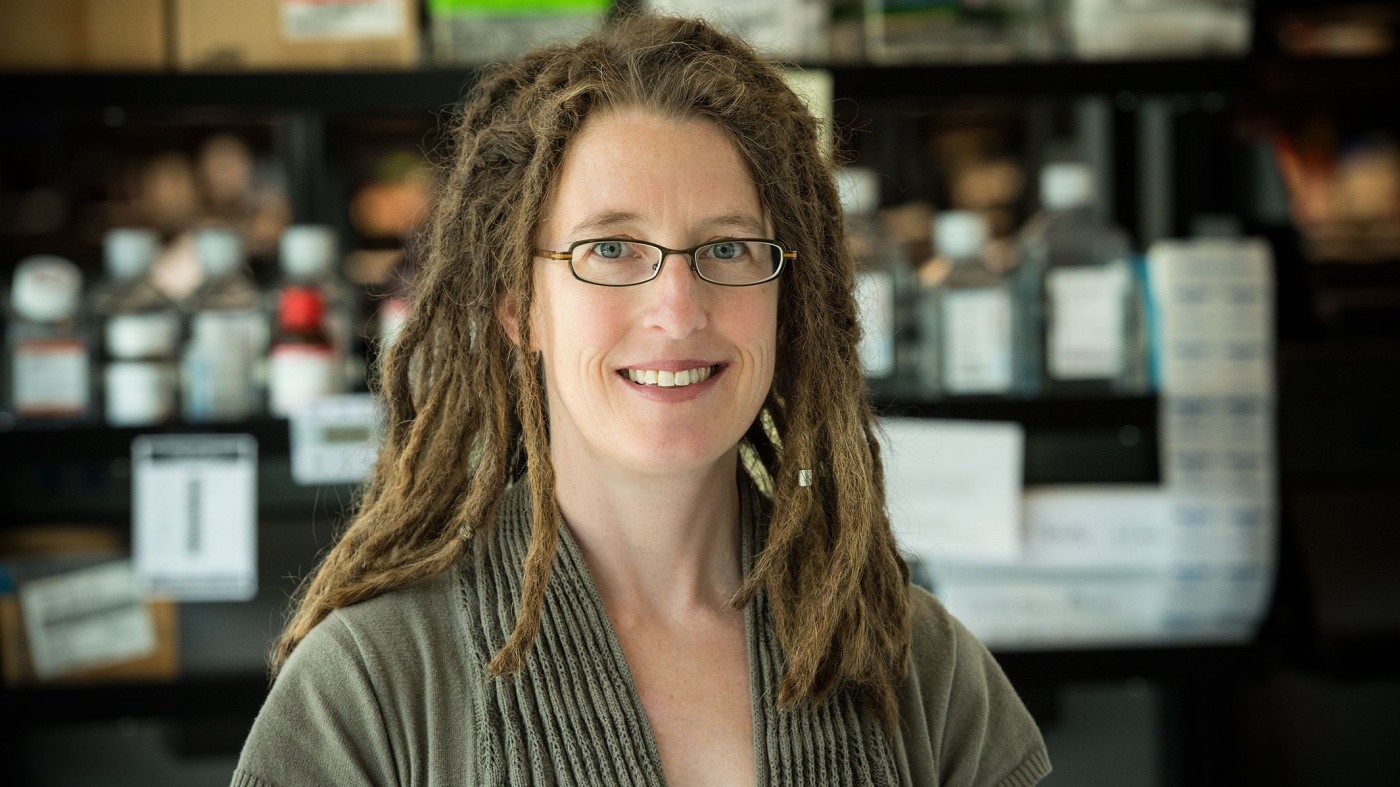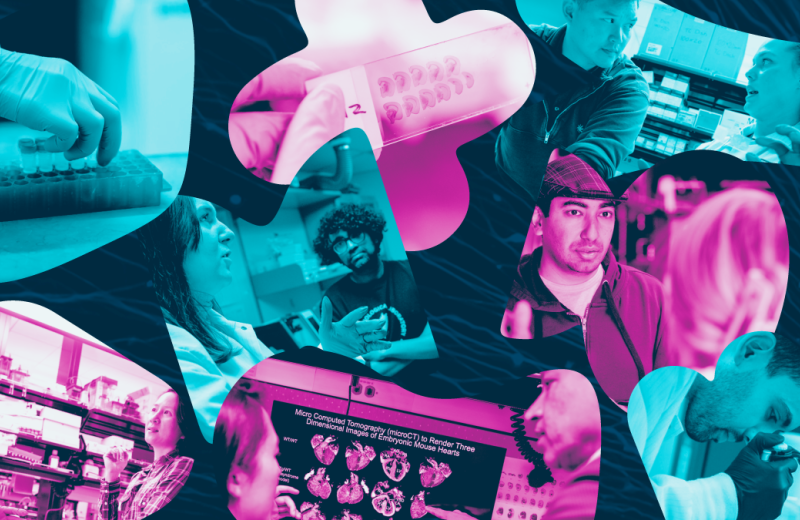Gladstone NOW: The Campaign Join Us on the Journey✕

Katherine Pollard, PhD, is serving as an advisor to the newly launched National Microbiome Initiative, bringing her expertise in bioinformatics and big data to the national project. [Photo: Chris Goodfellow, Gladstone Institutes]
On May 13, 2016, the White House Office of Science and Technology Policy (OSTP) launched the National Microbiome Initiative (NMI). The NMI aims to help scientists better understand the microbiome, a community of micro-organisms that inhabit all aspects of the earth’s ecosystem. With support from numerous federal agencies, the initiative promises to develop scientific tools and training programs centered around the microbiome to combat chronic human diseases, climate change, food security, and more.
Katherine Pollard, PhD, a senior investigator at the Gladstone Institutes, was invited by the OSTP to join a group of thought leaders to advise the NMI. Pollard will represent bioinformatics—the collection and analysis of biochemical and biological information using computers—in the NMI’s quest to harness the microbiome for the benefit of individuals, communities, and societies.
“I am honored that the White House invited me to join this important initiative,” said Pollard, who is also a professor of epidemiology and biostatistics at the University of California, San Francisco. “Because microbiome data is so large and complex, it is crucial that scientists from many disciplines work together to understand the role of microbes in human health and the environment.”
While Pollard’s research focuses on understanding the microbiome through bioinformatics and modeling, other projects study human disorders such as diabetes and asthma, the impact of the ocean and soil on climate change, and the influence of plants, animals, and water on food production. John P. Holden, director of OSTP, told The New York Times that this initiative is about “connecting a lot of threads and looking for common insights across different domains.”
The NMI emerged from initial discussions at the OSTP involving Pollard and other leading researchers from around the country. These meetings resulted in two papers, published in Science and mBio, that called for international support to fund comprehensive, interdisciplinary research on the microbiome. The articles reviewed what is known about the microbiome and described its potential to transform scientific research, impact the social sciences, create new economic opportunities, and benefit human life across the globe.
“The societal and economic impact of this endeavor could be substantial,” said Pollard. “By leveraging data and insights across disciplines, we hope to accelerate development of new preventive therapies for human diseases and influence policies that promote a healthy microbiome.”
Featured Experts
Want to Join the Team?
Our people are our most important asset. We offer a wide array of career opportunities both in our administrative offices and in our labs.
Explore CareersHow AI Is Accelerating Life-Saving Discovery
How AI Is Accelerating Life-Saving Discovery
Gladstone scientists are developing new AI tools that promise to revolutionize how science is done and lead to new treatments for the most devastating diseases.
AI Srivastava Lab Pollard Lab Engelhardt Lab Theodoris Lab Shipman Lab Ramani Lab Finkbeiner Lab Cardiovascular Disease Neurological DiseaseGladstone’s Scientific Highlights of 2025
Gladstone’s Scientific Highlights of 2025
From fundamental insights to translational advances, here’s how Gladstone researchers moved science forward in 2025.
Gladstone Experts Alzheimer’s Disease Autoimmune Diseases COVID-19 Neurological Disease Genomic Immunology Cardiovascular Disease Data Science and Biotechnology Infectious Disease Conklin LabSix Gladstone Scientists Named Among World’s Most Highly Cited Researchers
Six Gladstone Scientists Named Among World’s Most Highly Cited Researchers
The featured scientists include global leaders in gene editing, data science, and immunology.
Awards News Release Corces Lab Doudna Lab Marson Lab Pollard Lab Ye Lab




